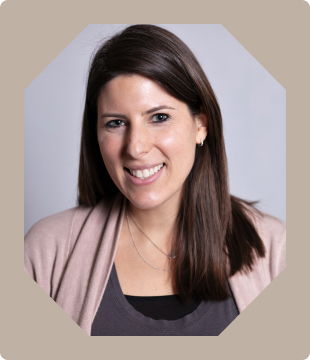About 4 years ago, I was asked to take over an adult education program. It was not something I helped to create or establish goals for or even the budget for. It was a small part of my job. The program came out of a conversation with a colleague and a group of congregants looking for something new. My colleague created a committee out of this group, and thus the committee became the champions of the program. It was very successful before the pandemic. It was even more successful during the pandemic. It brought people together for meaningful moments on Zoom, with speakers we were able to access because it was virtual, in ways that we couldn’t do before.
But then something changed. Maybe it was that the pandemic “ended” and people didn’t want to listen to speakers on Zoom. Maybe it was that more and more of the target population spent their winters in warmer weather and didn’t feel as connected. Maybe the speakers or topics lost relevance. Regardless, something changed, and people stopped coming. Even the champions of the program stopped coming regularly over the past year. However, they still felt the program should exist—they talked about it often and how amazing it was. But they weren’t actively engaged in the program in the same ways anymore. Why was this program important to them? Was it still important enough to show up for? Or was the program it only meaningful in “existence” but not practice?
“…sometimes, we need to change and let things go so that something new can emerge.”
Our job as Jewish educators is to help our community navigate through changes. Change is vast. It can be lifecycle changes, like a child growing up and becoming bar mitzvah. It can be learning changes, like when a student needs to navigate through new medication or an IEP. It can be helping students grow into madrichim and guiding them to be leaders. But, sometimes, we need to change and to let things go so that something new can emerge. It’s okay that a program lost its relevance or lost its meaning. Just because we’ve run a family education program the same way year after year, doesn’t mean we should run a family education program the same way going forward.
Our learners are different. Our parents, our teachers, our communities—they are all different and constantly evolving. Jewish Educators must respond to the learner in front of us, to who they are in this moment and what their diverse and unique needs are. We need to listen and reflect. Only then, can we get creative, can we pivot, can we adapt, can we change and thus grow because of those changes. Change is the enduring understanding of our work!
“Even in the most positive of changes there’s a mourning process…”
Jewish educators help navigate the changes, and the feelings that inherently come with the processing. We can mark the changes with rituals and Jewish values, and honor the multitude of feelings. Change is inherently hard; it affects us all in different ways and it may impact us at different times. But it is our job as Jewish educators to help process, navigate and make it through the changes. Even in the most positive of changes there is a mourning process—even more so in the most challenging ones. Parents can be so proud of their child becoming bat mitzvah, but also mourn the loss of the young child they used to be. We need to have compassion for the many feelings the change brings. As educators, we need to listen, and then, in partnership, we need to build something new, together.
As Jewish educators, we need to help the builders make space for new voices too. And perhaps if a program doesn’t serve the new voices in the same way, we need to be willing to reflect and let it go. As Jewish educators, we need to be willing foster that change so that it’s the right fit for the people here in this moment. It can be challenging to live in the liminal space of letting go and building something new. We can’t hold on to things just for nostalgia; we must hold on to things because they are meaningful and relevant and are thus experiences that people will show up for.
That’s what Jewish education is at its best: it’s about being present and creating something in partnership with others. It’s about relationships and feeling that you are a part of a community. It’s about being and feeling seen. It’s about navigating our lives, the ups and the downs, the changes, and the evolutions, and framing them with Jewish values, rituals, and context. Jewish educators are doing the hard work of changing and adapting in every new generation in new and relevant ways each and every day.

